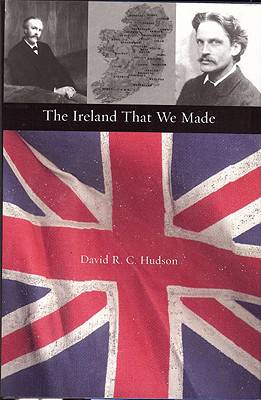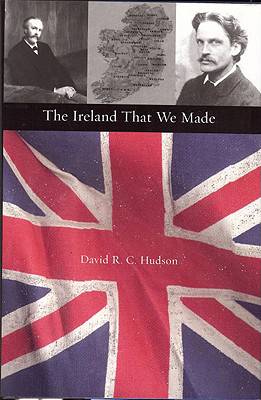
Je cadeautjes zeker op tijd in huis hebben voor de feestdagen? Kom langs in onze winkels en vind het perfecte geschenk!
- Afhalen na 1 uur in een winkel met voorraad
- Gratis thuislevering in België vanaf € 30
- Ruim aanbod met 7 miljoen producten
Je cadeautjes zeker op tijd in huis hebben voor de feestdagen? Kom langs in onze winkels en vind het perfecte geschenk!
- Afhalen na 1 uur in een winkel met voorraad
- Gratis thuislevering in België vanaf € 30
- Ruim aanbod met 7 miljoen producten
Zoeken
Omschrijving
The Ireland That We Made examines the origins, the ideas, and the development and collapse of the policies pursued by Unionist chief secretaries for Ireland between 1887 and 1905. These policies were generally referred to collectively as Construction Unionism, and also (more critically) as "Killing Ireland with Kindness." The principal exponents of Constructive Unionism-Arthur and Gerald Balfour and George Wyndham-transformed Ireland beyond recognition, though in the end they (and Ireland) were the victims of their own success as Ireland left the Union with Great Britain in 1922. This study challenges a number of orthodoxies, most notably the claim that the policies associated with Constructive Unionism were both inconsequential and incoherent-essentially an aberration when set against the broad trend of British policy in Ireland. Furthermore, this study will suggest that there was nothing inevitable about Ireland's departure from the Union with Great Britain in 1922. Previous studies have perhaps been too ready to assume that Britain's Irish policy between 1887 and 1905 savored more of Westminster than the west of Ireland. Compelling evidence is offered here that Constructive Unionism may in fact have represented Britain's finest hour in Ireland.
Specificaties
Betrokkenen
- Auteur(s):
- Uitgeverij:
Inhoud
- Aantal bladzijden:
- 256
- Taal:
- Engels
- Reeks:
Eigenschappen
- Productcode (EAN):
- 9781884836978
- Verschijningsdatum:
- 1/02/2003
- Uitvoering:
- Hardcover
- Formaat:
- Genaaid
- Afmetingen:
- 147 mm x 221 mm
- Gewicht:
- 498 g

Alleen bij Standaard Boekhandel
+ 74 punten op je klantenkaart van Standaard Boekhandel
Beoordelingen
We publiceren alleen reviews die voldoen aan de voorwaarden voor reviews. Bekijk onze voorwaarden voor reviews.









